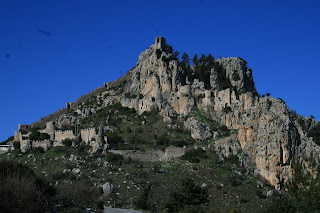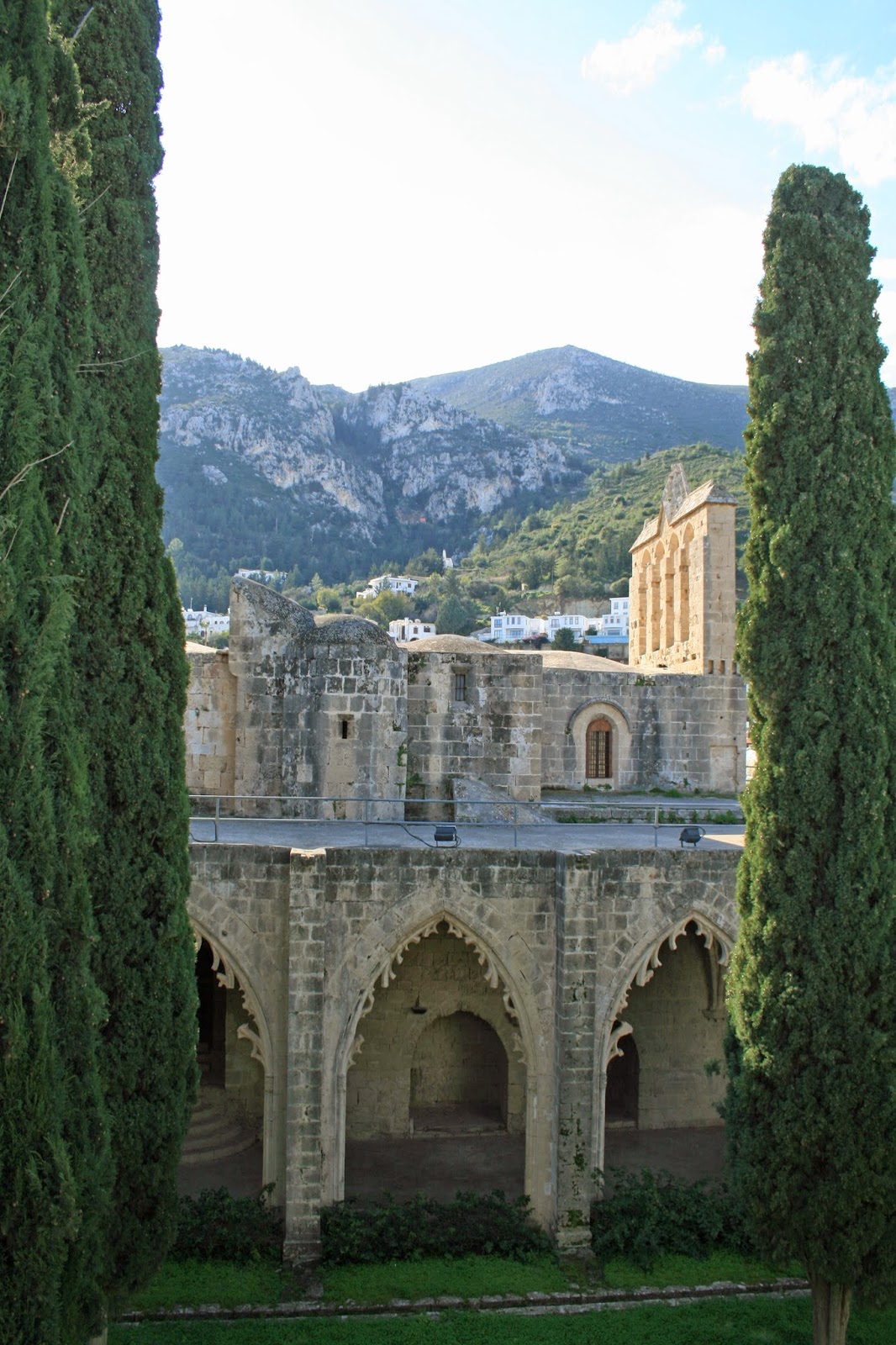 |
| Castle of St. Hilarion on Cyprus |
After being rejected as King of Jerusalem by all the barons of the kingdom in 1192, Guy de Lusignan purchased the island of Cyprus from Richard of England and tried to establish Frankish/Latin rule over the Byzantine/Orthodox citizens of the island. Less than two years
later he was dead. Notably, he designated his elder brother
Geoffrey — not Aimery who had been with him so long and through so much with him — as
his heir. The record is far too sketchy to know why, but there may have been
tension between the brothers all along. Aimery’s support of his brother, as I
noted before, was not necessarily indicative of genuine approval of his
policies or actions but rather the imperative of family loyalty and
self-interest. Fortunately for Aimery, Geoffrey de Lusignan had no interest in
Cyprus. So Guy’s vassals chose Aimery as his successor.
Within three
years of becoming the Latin/crusader overlord of Cyprus, Aimery had established
peace on the island, set up a Latin ecclesiastical hierarchy alongside the Orthodox one (evidently
following the model in the earlier crusader states that allowed the inhabitants
to follow their own faith but giving the Latin clergy valuable properties), and
raised Cyprus to the status of a kingdom. Thus while Guy de Lusignan was “Lord
of Cyprus,” Aimery was “King of Cyprus.” He obtained the dignity of kingship by
offering to do homage for Cyprus to the Holy Roman Emperor. This was to cause
trouble for his successors and lead to a bloody civil war a generation later,
but Cyprus remained a Kingdom for nearly 300 years — ruled by the direct
descendants of Aimery de Lusignan.
 |
| The Abbey of Bellapais built during the Lusignan rule of Cyprus |
Nor was that the
end of Aimery's astonishing life. In 1197, his first wife, Eschiva d’Ibelin died
having given him six children, three of whom had lived to adulthood. The eldest
son of this marriage, Hugh, was now his heir apparent in Cyprus and would in due time
inherit the Kingdom. When Henry of Champagne died in the same year,
however, Aimery was selected as fourth husband for Isabella of Jerusalem, allegedly with the “almost
unanimous” support of the barons and bishops of the rump-state.
Aimery promptly
used his Cypriot resources to help strengthen his new kingdom. In the same year
that he assumed the crown of the kingdom his brother had squandered, he
recaptured the key coastal city of Beirut from Saracen control with the support
of German crusaders as well as his Cypriot forces. The following year, he
concluded a five year truce with the Saracens that gave the kingdom much needed
breathing space to retrench and consolidate itself. It was also the year in
which he named Balian d’Ibelin’s son John to his old position of Constable of
Jerusalem — an exceptional mark of favor for a young man not yet 20 and one presumes
more a gesture of gratitude to his father than a mark of confidence in one so
young. (John was later to swap the
constableship for the lordship of Beirut.)
In 1204, with the
Fourth Crusade diverted to Constantinople, Aimery concluded a new truce with a
six year duration. This gave his kingdom the peace it needed for economic
recovery, but he did not live long enough to enjoy it. In February 1205, his son by Queen Isabella —
the only son she ever had — died, and Aimery followed him to the grave within two
months, Isabella shortly afterwards. The
crown of Cyprus passed to his son Hugh, and the crown of Jerusalem to Isabella’s
oldest surviving child, her daughter Maria of Montferrat.
Aimery de
Lusignan was King of Cyprus for eleven years and King of Jerusalem for eight — twice
as long as his brother Guy had been. To both kingdoms he had brought stability
and peace. His reign was looked back upon by subsequent generations as one of
justice and prosperity — in both kingdoms.
Aimery de Lusignan plays a major role in my three part biography of Balian d'Ibelin:
My three-part biographical novel is dedicated to bringing Balian, his age and society "back to life."
Buy now! Buy now! Buy now (paperback)
or Kindle!
Buy now! Buy now! Buy now (paperback)
or Kindle!




No comments:
Post a Comment